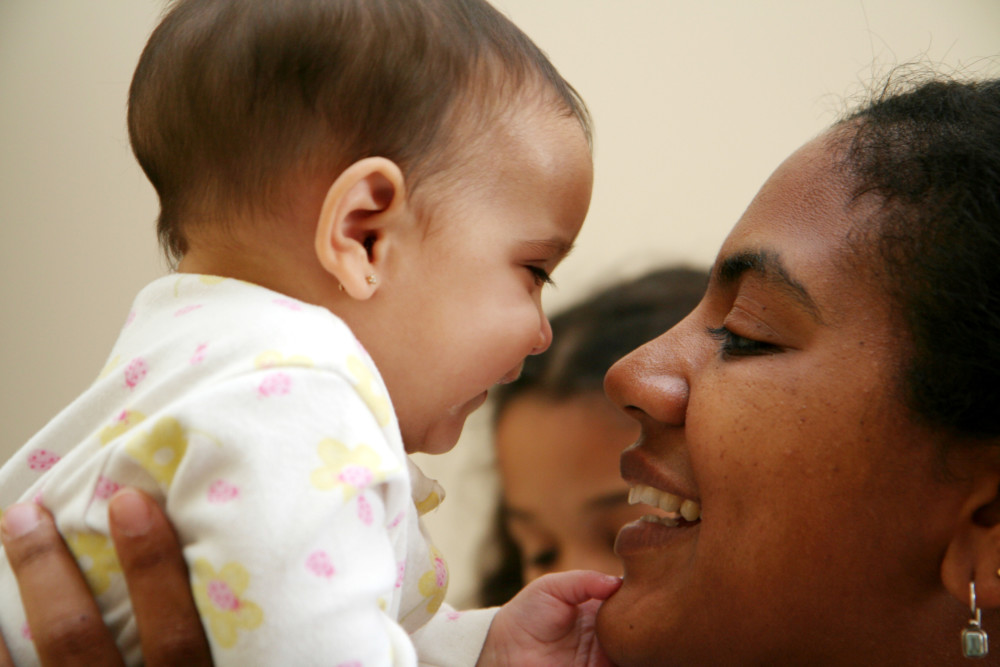Susan Tompor
Detroit Free Press
WWR Article Summary (tl;dr) As Susan Tompor reports, “It will take a village to make sure that a complicated, and potentially confusing, expanded Child Tax Credit gets big money to the families who need it the most.”
Detroit
In Detroit, volunteers actually will be going block-by-block, door-to-door in key neighborhoods that have clusters of lower-income families with children, from newborns through age 17, to alert people who typically aren’t required to file tax returns that they need to get on board with this newly expanded tax credit.
“We’re hoping to reach 2,000 families,” said Jessica Brown, director of strategic initiatives and special projects for the Community Development Advocates of Detroit.
She said training of the volunteers will take place soon with visits planned for early August to get the word out about how to make sure you get the money, if you qualify.
Even in her own daily conversations, Brown’s surprised to learn that many people aren’t aware that families with young children now can receive an extra check from July through December in 2021.
The changes involving the Child Tax Credit are part of the American Rescue Plan, which was signed into law March 11.
Detroit Mayor Mike Duggan said there’s an excellent chance that many people have a lot of money coming to them and they don’t even realize it.
Duggan spoke at a press event June 17 in Detroit to encourage eligible families take advantage of what the city called a “one-time windfall.”
For example, a qualifying family with three children ages five and younger could be looking at receiving $900 via direct deposit or check around July 15 when the monthly payouts begin.
“You could have significant money deposited in your account four weeks from now, if you filled out the proper paperwork,” Duggan said.
Duggan noted that parents can use this extra cash to pay for child care if necessary to get back to work, pay bills to cover everyday expenses or put some money aside to cover a child’s education.
Eligible families will receive up to $300 per month for each qualifying child ages 5 and younger and $250 per month for children ages 6 to 17. The monthly payouts will be sent by the IRS each month through December this year only.
For example, a family of three with very young children could be looking at an extra $5,400 in their pockets this year. Another $5,400 would be available for that family of three with very young children when they file a tax return in 2022.
Total value for the family in this example: $10,800.
The one-year provision expanded the maximum credit to $3,600 per child under age 18 for qualifying families.
“A lot of people don’t realize that there is money to help you raise your children — and it’s separate from everything else you’ve heard about,” Duggan said.
Duggan said he received a call from Gene Sperling, a senior adviser to President Joe Biden, and Sperling asked him to take a leadership role in explaining how the expanded credit works to help lift families out of poverty.
“People don’t really understand it,” Duggan said.
Duggan said he expects the city will continue to push an education effort, including having the mayor possibly do an evening address to discuss this credit.
An awareness campaign is being led by the city, the United Way for Southeastern Michigan, the Kresge Foundation, the Skillman Foundation, the Balmer Group and others.
Sperling, who served on the economic teams in both the Obama and Clinton administrations, and others want to build public support for the expanded credit so that Democrats could push to make it permanent.
To spread the message, Monday was designated as Child Tax Credit Awareness Day.
Biden said in a statement: “This tax cut will give our nation’s hardworking families with children a little more breathing room when it comes to putting food on the table, paying the bills, and making ends meet. Nearly every working family with children is going to feel this tax cut make a difference in their lives, and we need to spread the word so that all eligible families get the full credit.”
Explaining the expanded benefit
Three key features of the credit will help low-income families significantly but many do not yet know about these rules.
First, families will not lose any other existing public assistance when they receive the expanded child tax credit, according to H. Luke Shaefer, director of Poverty Solutions at the University of Michigan.
The credit won’t reduce the amount of money received, for example, for the Earned Income Tax Credit or SNAP food assistance programs.
“It’s not going to count against other public benefits,” Shaefer said. “People will continue to get their EITC.”
Second, a family does not need to have income to receive the expanded credit, as you would need to qualify for the Earned Income Tax Credit.
Some families who make too little money and have only one child, for example, might not file a tax return in some cases because they believe they won’t get much money for the Earned Income Tax Credit.
But the child tax credit can be very substantial even for families with one or two children, so it’s important to file tax returns in these cases.
“You get the full (child tax) credit if you have zero earnings,” Shaefer said.
Third, your children must have Social Security numbers to qualify for the credit. But parents do not need Social Security numbers themselves.
“The parents’ documentation doesn’t matter,” Shaefer said.
“Raising kids is expensive, and society has a reason to help parents in that work,” he said.
Who can qualify
You must be a parent, guardian or caregiver with dependent children up to age 17 — and your income must fall below set limits to receive the full benefit.
The age test is applied as of Dec. 31, 2021, so a child who is 17 through most of 2021 but is 18 by Dec. 31 would not qualify, according to Mark Luscombe, principal analyst for Wolters Kluwer Tax & Accounting.
Luscombe noted that a caregiver who does not have a family relationship with the child would qualify if certain conditions are met, such as if the child has the same principal place of living as the taxpayer, is a member of the taxpayer’s household and the child meets a very low gross income threshold (less than $4,300 for 2020 and 2021).
To receive the full credit as a single parent, for example, you must meet the requirements for filing taxes as a head of household and your income must be $112,500 or less.
Or if you are single and do not meet the requirements for filing as head of household, your income must be $75,000 or less.
If married and filing a joint return, you’d qualify for the full benefit if your combined income is $150,000 or less.
Smaller payouts will be available for many families with higher incomes.
The basic Child Tax Credit of $2,000 per child does not change here and begins to phase out at a modified adjusted gross income of $400,000 for married filing jointly and $200,000 for other filers.
The expanded credit for 2021 adds the extra money on top of the $2,000 for many families who have more modest incomes.
If you’d qualify, you’d get up to an additional $1,000 in credit for each child ages 6 through 17 and an additional $1,600 for each child up through age 5.
“The old credit, the $2,000 credit, is still in place,” said Mark Steber, chief tax information officer for Jackson Hewitt.
When it comes to the advance that will be paid out from July through December, he said, people need to realize that they would not lose out on any credit if they don’t receive the correct amount that they’re due this year. Those modifications can still be made when a 2021 federal income tax return is filed in 2022.
“They’re only advancing half out of an abundance of caution,” Steber said.
He noted that people who don’t want to receive money this year also will eventually be able to opt out of the advance Child Tax Credit payments at IRS.gov.
Who will get money automatically
Families do not need to do anything to start receiving a monthly payout in July — if they filed a federal income tax return for 2019 or 2020.
Or if they already signed up to receive a stimulus check from the IRS by using an online non-filer tool that was available for that program.
How to get help with figuring out what to do next
Much more information will be available in the days and weeks ahead as we get closer to July 15.
The IRS has begun sending out letters to more than 36 million families who may qualify for the monthly payments.
For example, the IRS is expected to offer more online tools and information at IRS.gov/childtaxcredit2021 in the coming weeks.
The Internal Revenue Service is urging those who haven’t yet filed their 2020 return — or 2019 return — to do so as soon as possible so they can receive any advance payment. There is no penalty charged for filing a tax return late if you’re owed a tax refund. If you owe taxes, it’s better to file soon to minimize fees and interest too.
The IRS also has a special “non-filer tool” online at IRS.gov to help eligible families who don’t normally file a tax return register for the monthly Child Tax Credit advance payments that are scheduled to kick off July 15. (The tool is currently only available in English.)
The United Way for Southeastern Michigan has a special website called GetTheTaxFacts.org that gives a variety of tips, including ways for lower income families in Michigan to get their taxes done for free through the Accounting Aid Society and the Wayne Metropolitan Community Action Agency. Or those in metro Detroit can call the community helpline 2-1-1 for information.
A website from Poverty Solutions at the University of Michigan offers step-by-step guidance for parents to ensure they receive the expanded Child Tax Credit. See: https://poverty.umich.edu/child-tax-credit/
Shaefer, director of Poverty Solutions, said he anticipates that some people who don’t regularly file taxes won’t get their first monthly payments in July because they won’t know about the process.
“We’re not going to get everyone right at the start,” he said.
But some families might hear about the checks from a neighbor or friend and then be able to file a return or submit information at the non-filer portal at IRS.gov to get the money beginning in August or September.
“Detroit families themselves are going to be the most important ambassadors of this,” Shaefer said.
(Susan Tompor is the personal finance columnist for the Detroit Free Press. She can be reached at stompor@freepress.com.)
Distributed by Tribune Content Agency, LLC.















































































































































































































































































































































































